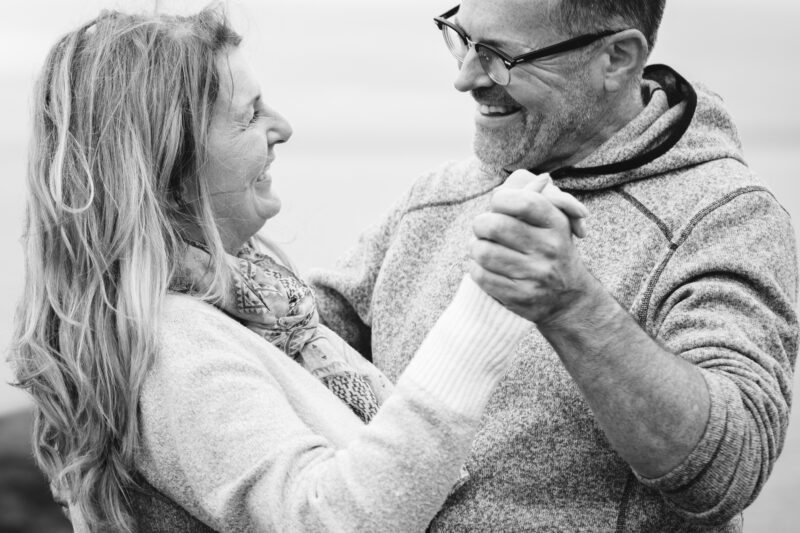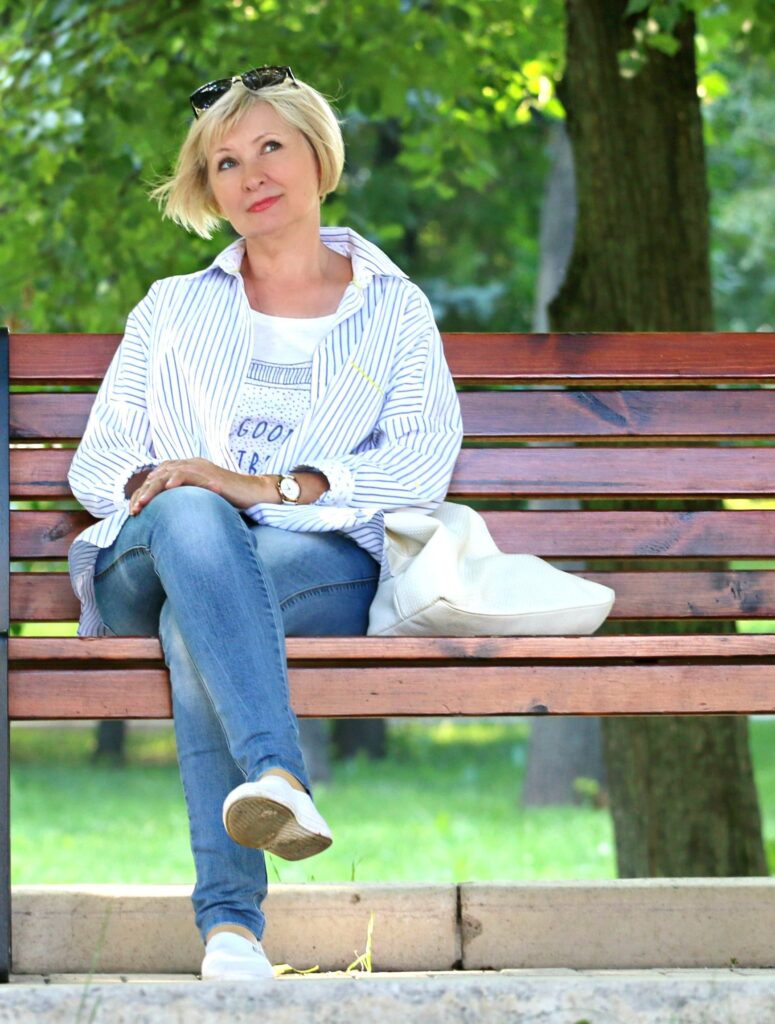
I saw this the other day, “It takes a long time to make your life simple.” This thought followed me on this hum-drum rainy Monday as I fought with the vacuum cleaner, scrubbed pans and attended to boring cleaning tasks around the home. Perhaps this is why many older people report being happier than at any other time in their lives. With ageing comes a simpler existence for many of us. Gone are the demands of career building, parenting young children and homebuilding. There’s a point in our older lives where we can ask..
- What do I really want for the remainder of my life?
- What sort of older person do I want to be?
- What do I want to be remembered for?
- What are the things I want to get done in these years?
- How do I live well with what I’ve got?
- How do I care for myself, my family and my friends?
A chat with my neighbour today made me smile. Skipping over the wintry weather, we landed on the ordinariness of life some days and how it felt just fine. She was decluttering today. In her beautiful Irish lilt Cathy said, “Why have I got 15 cardigans for God’s sake? And that dinner service with a setting for 12 when my table only seats 4 ..and all that crystal that needs to be hand-washed but it’s never used anyway so that’s useless! ” We can all relate to the stuff we cart around until we can bear it no more and decluttering becomes our mantra.

Simplicity of life and gratitude are often partners in ageing well. When we have reduced life to its most meaningful we can appreciate the shades, tonal qualities and depth, we notice new growth, we can stretch unencumbered into new territory and reveal what is most important to us. A grandchild’s questions- the forever WHY? Daffodils peeping through wet earth. The intricate layered smell of a curry bubbling on the stove. The colour of a winter sky. Shared laughter with a friend. All of these emerge with a stronger depth of awareness when life is sculpted around its most meaningful core. We can be thankful and in awe when we really see with our older eyes, the world around us.
Melody Beattie (The Language of Letting Go) writes
” Gratitude turns what we have into enough, and more…. it turns denial into acceptance, chaos into order, confusion into clarity..it makes sense of our past, brings peace for today and creates a vision for tomorrow.”
So along with creating a simple, meaningful life in our older years – How do we develop practices that help us Age Gratefully?
In ” olden days” we institutionalised the habit of gratitude. Some said ” grace” before we ate a meal….I remember the hurried monotone of 100 girls when school lunches were served… “Thank you for the food we eat, thank you for the world so sweet…etc ” as we gave thanks for the grey – green cabbage and withered sausages that were a 1950’s school lunch in the UK. Americans have Thanksgiving dinners as a focus on gratitude.
Without religion to fall back on how do we remind ourselves to notice the good things around us and be grateful?
Here are some suggestions that may help you develop appreciation and gratitude
- Before you go to sleep take a moment to identify the thing that made you happiest that day- you’ll be surprised what keeps showing up
- If you like writing or drawing keep a gratitude journal that tells the story of the things that give you happiness. It may be things your grandkids say, flowers you pick every week to make your home look special, kind words from a friend….
- I have some key gratitude questions in the Notes section of my phone and when I’m sitting at the Doctors surgery or waiting for my car to be serviced I’ll take a look at them and think of my responses.
- These questions can be used in reflective moments or journals
- What are you looking forward too?
- What parts of your body are strong and agile and make things possible?
- Who is important in your life? Why are they important?
- What are 3 things you experienced or saw today that made you smile?
- What are 3 things that you have that make ageing well possible?
- What are the simple pleasures you enjoy that you are grateful for?
Making gratitude an intentional practice is another act of simplicity. Even on the worst day if you notice the world around you and live mindfully there will be opportunities for gratitude.
What are the benefits of developing a gratitude habit?
I looked at the work of Amy Morin, a psychotherapist and author of the book 13 things that Mentally Strong People Don’t Do. An article in Forbes magazine titled Scientifically Proven benefits of gratitude that will motivate you to give thanks all year round was printed in November 2014. In it Morin summarised these proven benefits of developing gratitude awareness and practices.
- Gratitude opens doors to more and better relationships- noticing qualities in people develops fertile ground for friendships to grow
- Gratitude improves physical health – when we notice our bodies positively we become more conscious of self care in the food we eat, exercise and so on.
- Gratitude improves our psychological health. As I write this article many parts of Australia are in lock down again. These years of living with Covid are challenging. Gratitude practices help us look beyond and see the possible.. what we still have even though much is out of our control. Gratitude can curb some of the toxic emotions times of instability can bring. Morin quotes research conducted after the 9/11 bombings in the USA and how developing gratitude practices helped people heal and stabilize their psychological state.
- Gratitude heightens our empathy and reduces aggression towards others
- Studies have shown that being in touch with gratitude can improve sleep patterns
- Gratitude can improve self- esteem by focussing on the positive, supportive and strong aspects of ourselves
- Gratitude can improve our resilience and mental strength – in present times to get up each day, deal with whatever changes have been made to our lives and find that elusive inner strength.
Ageing Gratefully has never been more important than in our current Covid existence, but it’s also a practice that can, in the long term see us age well.
